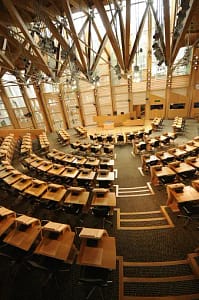

The Parliamentary Advocacy Network (PAN) has expressed its viewpoint that switching Nigeria’s government system back to a parliamentary system is not a panacea for the country’s governance challenges. PAN’s stance directly counters the proposal made by 60 federal lawmakers in the House of Representatives who are advocating for a shift back to the parliamentary system, a system Nigeria adopted at independence before transitioning to a Republican system in 1963.
The lawmakers, part of a faction within the House known as the Parliamentary Group, have recently put forward a Constitution Alteration Bill aimed at abolishing the Presidential system currently in use in Nigeria. The group’s spokesperson, Hon. Abdulsamad Dasuki, stated that the bill was motivated by the “expensive presidential system and the ‘overbearing powers’ of the President,” labeling Nigeria’s President as “one of the most powerful Presidents in the world.”
The Parliamentary Group criticized the current presidential system for its “high cost of governance,” which they argue diverts funds away from critical areas such as “infrastructure, education, and healthcare,” thereby impeding Nigeria’s developmental progress. They believe that a parliamentary system would lead to a governance model that is “accountable, responsible, responsive, and ultimately less expensive.”
Contrary to this perspective, PAN, through a statement signed by the National Coordinator, Sunny Anderson Osiebe, and the General Secretary, Fred Itua, articulated their disagreement with the proposed switch. PAN noted, “After a careful review of these positions by this Parliamentary Group of 60 House of Representatives members, the Parliamentary Advocacy Network has decided to make its position known on the subject matter to both the public and to the National Assembly.”
PAN elaborated on their viewpoint by stating, “The Parliamentary Advocacy Network strongly believes that a return to the parliamentary system of government is not ideal and certainly not the best option for Nigeria. We have practiced that system of government before now, at pre-independence and in the First Republic, and with the benefit of hindsight there were many flaws inherent in the parliamentary system as affects Nigeria, which one can argue actually led to the fall of the First Republic.”
Highlighting the potential pitfalls of reintroducing a parliamentary system, PAN argued that such a move “would further polarise the country along ethnic lines” and does not guarantee “a more efficient governance or tangible development across the country.”
Instead of altering the system of government, PAN advocates for “a restructuring of our present federal structure to become more accountable to the people.” They assert, “The cost of running our democracy can equally be drastically reduced even while running the presidential system if only elected and appointed officials see public office as a call to service.”
PAN also addressed the lawmakers’ concerns about the cost of governance, suggesting that “they should rather push for drastic reduction in the running cost of the federal legislature as a starting point while also helping to prevent wasteful spending of the executive branch since they legislate over the spending of the executive.”
In conclusion, PAN calls for a focus on “resource control and devolution of power” rather than a system change, stating, “We therefore call on the Parliamentary Group comprising 60 lawmakers of the House of Representatives to withdraw the Bill they laid before the green chamber and re-present another set of Constitution Alteration Bills that would address the contentious issue of resource control and devolution of power, Osiebe and Itua added.”

[…] Read Also: Parliamentary system won’t solve Nigeria’s problem, no need to switch – PAN […]